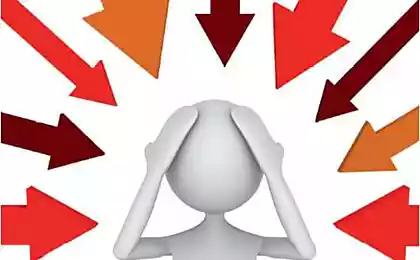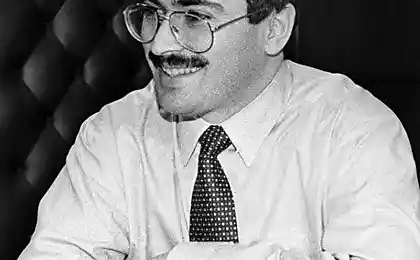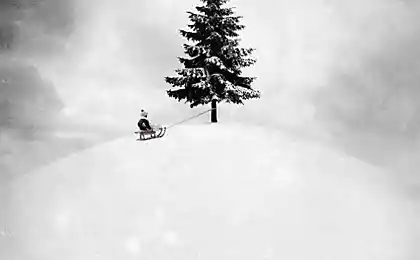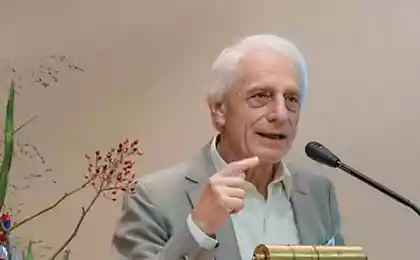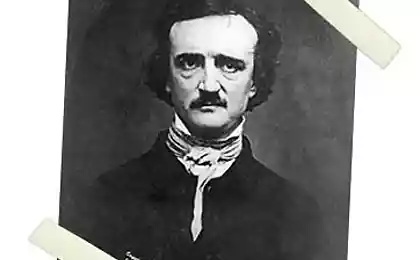586
"The theme of kindness so all the hate": the writer George Saunders on how to be a good
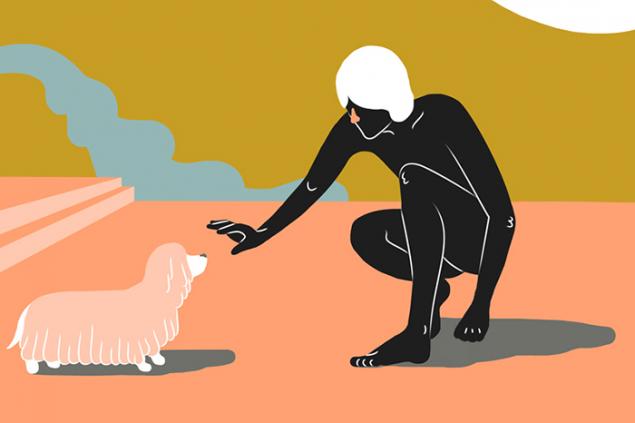
© Sara Andreasson
New York Times calls the writer and journalist George Saunders a genius: he has received numerous literary awards and is included in the list of the 100 most influential people in the world by Time magazine. Recently released a new book Saunders — "congratulations, by the Way: some thoughts on kindness". T&P asked the writer why being good is so difficult that in General it is necessary to understand goodness and why talk about it so annoying. — "Congratulations, by the way: some thoughts on kindness" is an enhanced version of the famous speech that you read to the graduates of Syracuse University, and after that was reprinted in Newspapers. Why did you decide to write it?
— I teach at Syracuse, and our Dean just asked me about it. Actually I don't really like to write or speak on such a broad topic, but when the ceremony left a couple of days, I remembered that I wrote a speech for school graduation ceremony of my daughter a few years ago, and just slightly altered the text. After the speech was published in book form, began to happen strange things. For example, I now all the time asking questions like I did a deep study of the good deeds of a long and storied life, which I most certainly did not. So, please, take all my answers with a grain of salt. The main idea of this text was that to cultivate kindness and ability to love is the most important task in life, and I myself in this case seems to have failed.

"Congratulations, by the way: some thoughts on kindness"
— Why did you decide to engage in "big questions"?
— The theme of kindness got me interested, because she's all angry. I know that being nice is important, but I can't do anything. A moot point, but I guess it takes something deeper than just "resolve" to be good. It's like if someone decided to raise the barbell weighing 450 kg or to run a marathon, anything before that is not making. I think this basic human ability to behave kindly — implies certain obligations and the need to practice. Any randomly selected moment is an opportunity for state of mind, which we call kindness.
— Why this topic is all hate, by the way?
— Because it contains all at once: awareness, generosity, introspection, patience. And somehow, it requires to go beyond the normal attitude — and because we love ourselves so much that we put in the center of the universe. But talking about it is easy, but to change something really hard.

www.flickr.com/photos/drakeu/
And what is this kindness?
Oh, yeah, right. This is the main issue. Because the more you explore "kindness", the deeper it becomes. We all think we know what it is, but actually its definition is quite difficult to catch. The other day my wife said that kindness, if you really dig in this is awareness. What if the person 100% will be present in a situation and realize it will be 100% good. I love this definition because it repels the superficial idea that "good" certainly means "cute". If we were present in the current situation 100% interest, kindness could be firm, even strict. Being aware of all the circumstances as a whole, we would know exactly what to do. This is another definition of kindness, which I would have chosen: "what the others feel better." "What really helps". If we define goodness so, we can increasingly define what it entails. To "help", you must first see the situation and understand it to the fullest, not burdening the judgment, prejudice and commitment to a particular outcome. It's hard. Hard even just to be in this state, not to mention the fact to support it. So the next question that arises is — OK, and how do we do that? How to find it and log in? This question — and here I am ready to cause a lot of arguments — is the basis of most traditional spiritual practices.
Kindness is often called a weakness. Is that so?
No, I think just the opposite. If you define kindness as a state of the highest awareness and desire to improve the current situation — it is a very strong position to make full our best to give others what they want and what they need. But if we mistakenly believe the kindness a tendency to "always give way" or "no one to fight," you can feel the weakness of this position. And definitely there are people (dictators, criminals and other scumbags) who will try to sit on the neck of those who adhere to such a model. But I think really good people feel strong. They know that doing the right thing, not give in to the person's needs and understand that to give someone an unfair requirements is a form of complacency, and it does not help anyone — neither the victim nor the offender.
"If the state of peace and generosity cannot log on, you get the opportunity to be a person who acts under an erroneous belief that is in the center of the world. Being selfish sucks, and to be illogical — also sucks"— with generosity And kindness connected?
I think so. When we all realize the truth and open people and circumstances, comes to the fore quite natural sympathy. Under its influence itself there is a desire to offer help, support and so on. So, even if a lot of negative emotions (envy, greed, anger and the like) layers lie over the top of that warm feeling that rises from the deepest places spontaneously like water. These layers, which are actually talking about anxiety and high stress on the mind, slightly blind us, make terse and focused on yourself.
— What is the one who gives?
— If in this state of peace and generosity cannot log on, you get the opportunity to be a person who acts under an erroneous belief that is in the center of the world. Being selfish sucks, and to be illogical — also sucks. Because of these views, we think we live separately from all and will be forever — and both of those claims false. Life under the influence of erroneous beliefs great exhausting.
— You are a follower of the traditional Buddhist schools Nyingma — and what she says about good people?
— Almost everything I said here still, — a clumsy attempt to summarize what I encountered in this wonderful tradition. The Nyingma school — the amazing and extremely accurate way of looking at the world, because within it all starts with the fact that you can notice and goes to the fact that you can change in practice. There are no boundaries. I only wish that I myself engaged in this practice is not too responsible.
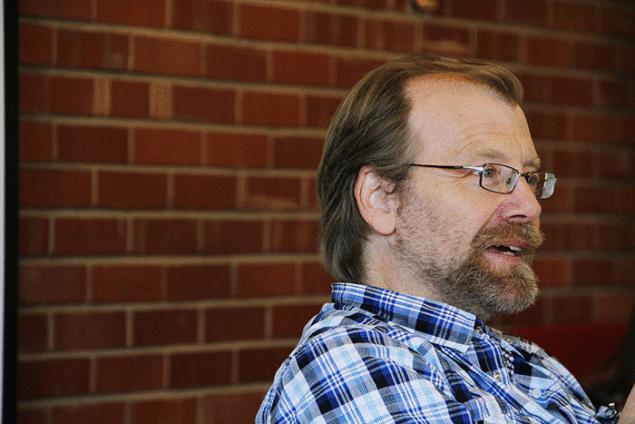
www.flickr.com/photos/drakeu/
— In your book you talk about "high" and "low" "periods of kindness". What is it?
— I meant only that you can look at your life, or even on one particular day and see that on this piece there were times when you felt happy, alive, funny and generous, and was — when you were so to a lesser degree. If at some point I could play a musical piece, and now I can't, it just means: practice, man. Once there is a time when we feel love and joy, so there must be a source of these feelings, and you can access them more often or more consistently (meditation, prayer, etc). In other words, it means that we are not locked inside the current condition, whatever it was. And that's great news. Of course, there is another side, is very scary: everyone can become worse, lose his mind or become depressed. Bet in any case is high, so you need to be grateful for the moments when you feel mentally healthy and happy, and use them to become happier and healthier.
— We often think that the few who treats us kindly. Maybe we just don't notice?
— Yes, and it is also associated with awareness. We all know the feeling of anxiety, a state of haste and Creasy — and our ability to sense what is happening around, in such circumstances, failing. We notice less and think up more. Become in some sense the deafblind — that, paradoxically, makes us more sensitive and manageable. It's kind of autopilot, which reduces the effectiveness of the mind, if we are involved. As if you're driving, fleeing from earthquakes, and the harder you push on the gas, the dirtier it becomes the windshield.
But to be "good", you need to be open so that you can easily injure. What to do with it?
— I think that a good, able man, in principle, better understand the risks in each situation, so that hurt him becomes more difficult. When someone hurts us, we start to make baseless assumptions and see what actually happens. Too many attempts to wishful thinking. But in the broad sense of love, of course, opens us up for injury. In particular, because we cannot refrain from unconscious about the assumptions that a loved one (and we) will live forever — while we both loved and loving — just smoke in the wind. For me this is perhaps the most complex and the most mysterious thing in life.
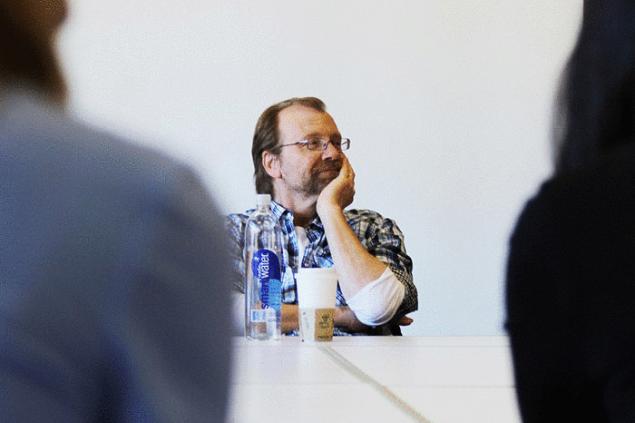
www.flickr.com/photos/drakeu/
— Since you're talking about love, I often hear words like: "I like people all in the world." It's a fake, a forgery: what is the theoretical goodness?
— In the comic "Peanuts" has a character saying "I love humanity, but people can not stand". It seems to me that kindness and love can be understood as the absence of certain things: the absence of whims and vagaries, lack of bias, lack of permanent neurotic desire to change. In addition, if our main goal is really to see and perceive something as it is, a certain disappointment because of the stupidity and annoyance of stupid choices is just part of the process: to be human. As soon as you begin to "allow" such things, with them getting to work. Like when someone loitering on the sidewalk in front and prevents you go; you irritably think, "Tourist!" — and then you notice it and ask yourself, "do I really want to feel it? I, myself have never walked the streets without you?" And suddenly these feelings suddenly cease to control you. They're yours, but they weren't you.
— How to do all this? The million-dollar question, as you yourself once said.
— I think people are trying to answer such questions for a very, very long time, and different religions offer different answers. I fit Buddhist practice — but perhaps the key point, regardless of tradition and approach is to decide: "Yes, that's the real questions, the most fundamental of all that is. And no one is tied tightly to what we think and how to live in the moment". This is a big step. And then you can try to note that makes you better, and what is not. And do what helps you and what hurts you, avoid. Even the smallest progress is significant and valuable when you consider the sheer enormity and importance of the task.
Source: theoryandpractice.ru
As the tilt axis and the depth of the ocean determine the suitability of exoplanets for life?
What to do if You hate to clean




